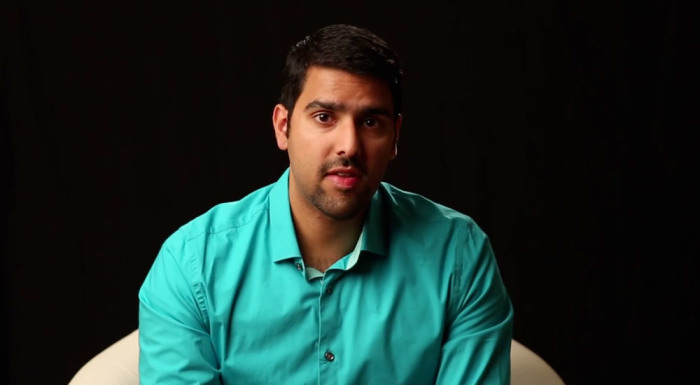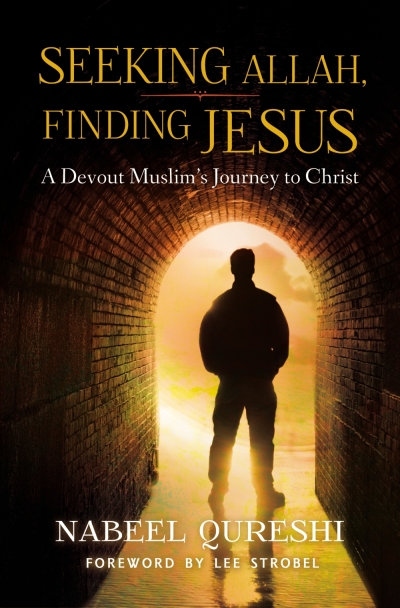Christians' Fear of Muslims Is 'Unbiblical,' Says 'Seeking Allah, Finding Jesus' Author (PART II)

Nabeel Qureshi is the author of the new book, Seeking Allah, Finding Jesus: A Devout Muslim's Journey to Christ, and works as an apologist for Ravi Zacharias International Ministries. Quereshi was raised Muslim by his parents who immigrated to the United States from Pakistan and came to Christianity over several years through intense conversations comparing the two faiths with a close college friend.
The following is an edited transcript of Part II of Qureshi's interview with The Christian Post (click here for Part I), in which he talks about how he's fulfilling the Great Commission by sharing his testimony with Muslims who are seeking to learn more about the Gospel and Jesus Christ.
Qureshi also speaks candidly about how his conversion is impacting his relationship with his parents and their treatment in the Muslim community; and why he advises Christians to start loving their Muslim neighbors, because to fear them is "unbiblical."
CP: Can you share a story that occurred after you started sharing your testimony?
Qureshi: There have been a few. There was an imam that I debated in 2006. He was a Salafi iman from northern Virginia. Salafi Muslims are the most reformist. They're what some would call most violent in their tendencies. The Wahhabi Muslims, al-Qaeda and Taliban are all closely related to Salafi Muslims.
I debated this imam back in 2006. I debated him again in 2009 and finally again in 2010. Every time we talked, and I'm not just saying it was me, but over time he gradually began moving away from his fundamentalism in Islam until at the end of 2010, when he said, "I can't follow Islam anymore."

I think he was honestly seeking and being honest about God. And from 2006 when I met him I thought: if this guy doesn't change tact, he is on his way to following Christ. That has just been really comforting to see.
When I was in California in 2012 I met a young Saudi Muslim woman named Sahr. Her father had passed away and her mother didn't have control of the family. It was very interesting. She was the oldest child, but her younger brother was her protector, her guardian in Saudi Arabia. She had to convince her 16-year-old brother to let her go to America, otherwise the government wouldn't have approved it.
I had a friend who was reaching out to her and inviting her to her home and making meals for her. My friend invited me over and said, "Sahr has some questions for you."
We just talked over a meal and she was kind of defensive, and she was just asking questions about the Trinity and how is it possible that God became a human. We just enjoyed a good meal and I talked to her and answered her as I would a sister. We met again one more time toward the end of the summer and she was much more open to accepting Christ. She introduced me to a friend of hers who was also Saudi and he was the really resilient one.
A year later I got a call from my friend who had been witnessing to Sahr and she said that not only had Sahr become a believer, but the other Saudi guy had become a believer as well, and had gone back to Saudi and was sharing the Gospel with people.
CP: That's incredible when you consider the ripple effect that that all has.
Qureshi: Yeah, and when you think about how hostile they were when I first talked to them. The Lord works. I honestly don't take much credit for that. It was just one conversation. It was my friend, Cynthia, who was there speaking with them regularly, and loving on them and providing for them. That just changes lives and it's amazing to see.
CP: Is there a reason you decided to include the Arabic script next to Mohammed's name in the book?
Qureshi: I included it whenever I was speaking as a Muslim about Mohammed or someone else was speaking as a Muslim about Mohammed. If you're a Muslim and you say Mohammed's name, you don't just say Mohammed, you say Mohammed Sallallaho Alehe wa Salam. When you see that symbol throughout the book, it is because that is how it was said at the time. When you see a Christian say "Mohammed," they won't say "Sallallaho Alehe wa Salam," so you won't see it there.
CP: What type of relationship do you hope to have with your sister and parents? What do you wish they understood about you?
Qureshi: With my sister it's been good the whole way through. She's a little bit more New Age liberal than my parents are. She believes that my journey was actually given to me by God, but that God wants her to be a Muslim. Her view is kind of different, but that happens a lot among second generation Muslims.
My parents, though, it's been difficult for them all these eight years. For a good while they didn't talk to me. They didn't come to my wedding. They didn't disown me, but for all intensive purposes we stopped functioning like a family. Recently, since this last November, it's been improving significantly, but it's still not at the best place yet. It's not near where it used to be.
CP: Do you think they take your conversion personally?
Qureshi: It's everything, really. They see me as having betrayed the family. They see me as a heretic. They see me as a polytheist. They see me as being a failure, and not only is that something they see me as, but when I became a Christian — given honor/shame culture — that affected their reputation.
They have had to suffer tremendously because of my decision. They were highly respected in the mosque. Now, quite often, they are ridiculed by others because they have a son who is a Christian. They take that out on me because what else can they do? From all angles it's very, very difficult.
CP: Would you like to share anything else?
Qureshi: We are called by Christ to love our Muslim neighbors. That there is such fear prevalent amongst Christians is not only inappropriate — because the vast majority of Muslims are loving, kind, hospitable people — it's also unbiblical.
Christ has told us to love even to the point of death, because that's what He did to us: He loved even to the point of dying for us. If we're going to follow Him, it means we must be willing to love to that point too. Over and over again the Bible says, "Don't be afraid," "you have not been given a spirit of fear but a spirit of power." The fear toward Muslims is insulting to our Lord Jesus, I think. I definitely want to get that across. We're called to love and at the same time not compromise the truth.
How do you respond to fears that Christians have about Sharia law?
Qureshi: Generally, what I see when people are fearing that is: "I am worried about myself. I'm worried about my rights, my ability to do x, y and z. I'm worried about my safety and security." That is unbiblical.
Once again, it's the whole fear thing. Christians have come through far worse in the past. And in fact, dare I say, we are better when we are persecuted because it forces us to live for Christ instead of just saying we are living for Christ.
I would say that the fear is unbiblical, it's unfounded. Is Sharia law taking over the U.S.? I really don't think so.
Are there pockets of the U.S. where Sharia is becoming more effective or applied? Specifically, I'd say Dearborn, Michigan, and maybe parts of Columbus, Ohio. Where you have high percentages of Muslims, you start to see Muslim practices.
The thing that's most scary about Dearborn, is you see politicians who are stopping Christians from sharing the Gospel with Muslims in accordance with Sharia law. I
Is that something that will spread and affect the entire U.S.? No, I don't think so.
I don't want to be flippant about this. I think we should be good stewards over our country and we should have good laws. But we shouldn't do so out of self-preservation for ourselves. We should do it out of an attitude of helping our neighbors and fellow countrymen, those who might who might be oppressed by Sharia law, not out of self-preservation.




























